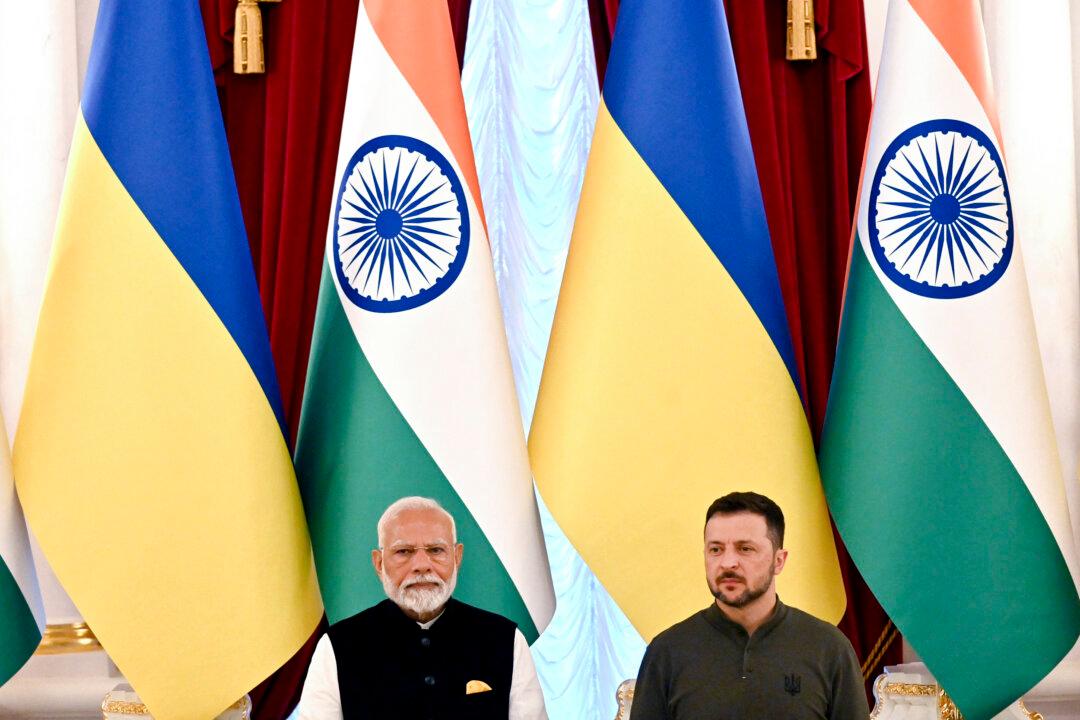NEW DELHI—In what may be seen as a diplomatic initiative, Indian Prime Minister Narendra Modi has now visited both parties in the war between Russia and Ukraine, completing his meeting with Ukrainian President Volodymyr Zelenskyy last week after traveling to Moscow to confer with Russian President Vladimir Putin six weeks earlier.
Modi was accompanied on his Aug. 23 trip to Ukraine by Indian Foreign Minister S. Jaishankar and national security adviser Ajit Doval, a move that analysts said underscored the serious nature of the visit.





